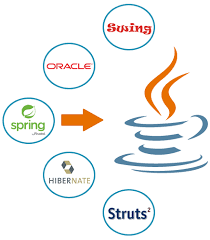Java is widely considered one of the best programming languages for integration software due to several key reasons:
1. Platform Independence
Java follows the “Write Once, Run Anywhere” (WORA) philosophy, which means that Java applications can run on any platform with a compatible JVM (Java Virtual Machine). This makes Java an ideal choice for integration software, especially in environments where diverse systems (operating systems, databases, hardware) need to communicate and interact seamlessly. Whether your integration involves Linux, Windows, or cloud platforms, Java ensures consistency across all environments.
2. Robust Ecosystem
Java has a rich ecosystem with a vast number of libraries, frameworks, and tools that facilitate integration with a variety of systems, applications, and protocols. Some notable integration frameworks in Java include:
- Spring Integration: A powerful framework to build enterprise integration solutions.
- Apache Lib: An open-source framework that provides extensive connectivity to various systems (HTTPS, FTP, JMS, etc.).
- Java Message Service (JMS): Java’s API for message-oriented middleware allows for asynchronous communication between systems.
These tools allow developers to quickly and efficiently integrate disparate systems and services.
3. Mature and Reliable
Java is a mature, well-established language with a long track record of stability and reliability. It’s widely used in mission-critical applications, making it a safe choice for developing integration software that must operate efficiently and without failure. This is crucial in integration scenarios, where even a small issue in communication between systems can have significant consequences.
4. Enterprise Support
Java is a staple in enterprise environments. Many large organizations use Java-based systems for their core applications, and these organizations often need integration software to bridge older legacy systems with newer technologies. Java’s enterprise-level tools, such as Java EE (Enterprise Edition) and frameworks like Spring, are designed specifically for building and maintaining complex integration solutions across multiple systems, databases, and APIs.
5. Security
Java has robust security features that are essential when integrating systems, especially in industries dealing with sensitive data. It provides built-in support for encryption, authentication, and secure communication, which are critical for ensuring the privacy and integrity of data during the integration process. Java’s security manager and API allow you to control and enforce security policies, reducing the risk of vulnerabilities in integrated systems.
6. Support for Multiple Protocols and Data Formats
Integration software often needs to handle different communication protocols (HTTPS, SOAP, REST, FTP, JMS, etc.) and data formats (JSON, XML, CSV, etc.). Java has excellent built-in support for many of these protocols and formats. Additionally, frameworks like Spring and Apache Camel allow easy configuration and routing of data, making Java a flexible choice for handling various integration requirements.
7. Concurrency and Scalability
Java’s concurrency model is highly suited for integration scenarios that require handling large volumes of data or messages between systems. Java’s built-in thread management, asynchronous processing, and support for parallel execution make it an ideal language for scalable, high-performance integration solutions.
8. Wide Community and Industry Adoption
Java’s large, active community is another reason why it’s often chosen for integration software. With millions of developers and enterprises using Java, finding support, solutions, and expertise for complex integration challenges is easier. Additionally, Java’s broad adoption across industries means that you’ll find integration solutions that are compatible with most modern and legacy technologies.
9. Long-Term Support (LTS)
Java provides long-term support through regular updates, which is crucial for integration software that needs to remain reliable over time. Security patches, performance enhancements, and new features are continuously rolled out, ensuring that your integration software stays up-to-date and secure.
Conclusion:
Java is considered one of the best languages for integration software because of its platform independence, vast ecosystem, enterprise support, and proven reliability. With its support for multiple protocols, scalability, and strong security features, Java makes it easier to integrate various systems, whether they’re legacy or modern. If your goal is to build robust, scalable, and secure integration software, Java is undoubtedly one of the best choices.

